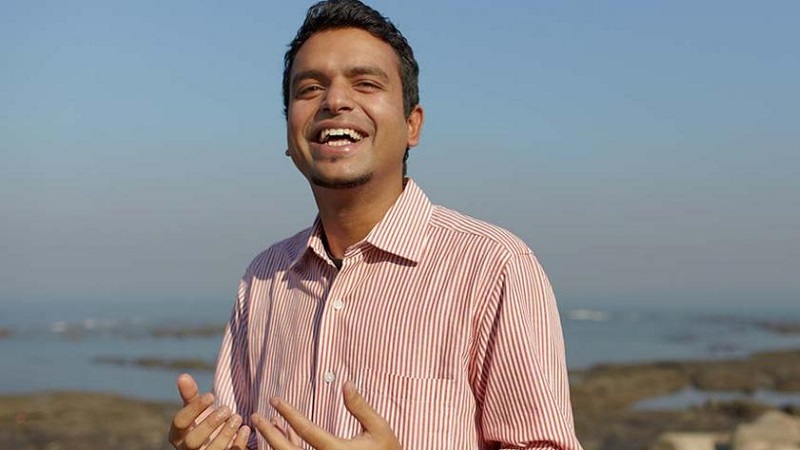Have you ever wondered how much easier travel has become, thanks to the digital innovations shaping our world? Exploring new destinations used to mean…
‘Playing patient investor, Omidyar has not made many exits from $1.3bn portfolio’ [Updated]

Philanthropic impact investor Omidyar Network has invested close to $1.3-billion* in non-profit and for-profit ventures globally since it was founded in 2004 by eBay founder Pierre Omidyar.
But an investment principal at the fund confesses that the funder’s “patient” approach to funding means it has made few exits so far.
“We are early-stage, impact investors and, because we have only one funder, our capital is patient.
“So when we look at investments, the total value creation of a company for us is comprised of financial returns, social impact, and its effect on the sector as a whole,” Ameya Upadhyay, an investment principal at the fund told Ventureburn.
Upadhyay oversees the portfolio of over $200-million the organisation has invested in financial inclusion.
However, he said the fund’s portfolio (see a full list of the portfolio here) has started maturing toward exits with market returns and is “in general healthy and on the black” adding that the portfolio is “providing solid impact returns”.
“While we do not disclose details of individual investments, I can point you to a recent, very successful exit in Indonesia. Our portfolio company Ruma has been acquired by Go-Jek in an effort to consolidate their mobile payment strategy (see Techcrunch story here),” he said.
Omidyar Network has invested close to $1.3-billion in investments since 2004, but investment principle admits that the funder has not had many exits
Upadhyay’s comments follow the fund’s announcement last week of a $6.9-million Series-A round in Nigerian fintech startup Lidya, which was led the by Silicon Valley-based philanthropic investment firm.
He said about half (or $610-million) of the $1.29-billion invested to the end of the first quarter of this year, was in for-profit companies such as others in the fintech space such as MicroEnsure, Zoona, Paga, Flutterwave, Lendable and Pula. The remaining $681-million went to non-profit organisations.
Investment sizes and equity stakes, he added, vary depending on the company, potential for impact, and alignment with our investment theses.
“In general, our portfolio companies have been successful in Africa and some of our earlier investments in the region have grown and turned into impact stars,” Upadhyay said. He provided a few examples:
- MicroEnsure: Since it became a micro-insurance agency in 2006, the company has expanded to 20 countries in Africa and Southeast Asia, insuring over 40 million emerging market consumers — 85% of these, for the first time.
- Paga: The company has more than 8 million customers in Nigeria, who transact daily using an agent network comprised of 15 thousand agents and helping more than 6 thousand business in the country to accept electronic payments.
- Zoona: Since its founding in 2007, the company has processed over $2 billion in transactions from consumers in South Africa, Zambia, Malawi, and Mozambique.
- FlutterWave: The firm has processed more than $1.5-billion in transaction value over 15 million transactions. It currently integartes more than 100 partners over 30 African countries.
‘Pioneering tech’
In what kind of companies and organisations does Omidyar then like to put its money?
Upadhyay says Omidyar looks to invest in the “pioneering” use of technology to increase reach, usage, and scale impact of financial inclusion solutions.
“In Africa, we are looking for entrepreneurs who have a deep and practical appreciation of local context and issues. We want to back ventures that are launching first-of-their-kind models to help mass market consumers take control of their financial lives,” he said.
He said the organisation is particularly looking for products that help individuals manage income volatility, capture long-term opportunities, build assets, protect against shocks are of particular interest to us.
“In other words, digital credit for productive uses, savings and investments platforms, insurance and pension technologies are on our radar,” he added.
“We also love to explore moonshot ideas breaking the product silos and re-imagining the status quo, as mentioned earlier our flexible capital allows us to take risks others cannot,” he added.
‘Good team, market size, economics, timing’
And what to Upadhyay are the three most important criteria for success?
These he describes as a team that is “nimble, realistic, and receptive to feedback”, a good enough market size, businesses that start with a positive gross margin — and to the right timing.
“We have seen very good businesses fail because they did not time their launch to coincide with market trends that could serve as tailwinds,” he added.
Entrepreneurs can reach Omidyar Network at aupadhyay@omidyar.com and ymante@omidyar.com.
*Editor’s note (5 June 2018): Omidyar Network wishes to clarify that its investment principle Ameya Upadhyay’s comments refer not necessarily to the $1.3-billion that the funder has invested so far — but to the over $200-million the organisation has invested as part of it financial inclusion sub-portfolio.
In addition only about half of the $1.3-billion that the funder has invested so far were in for-profit companies — where it would likely seek to exit. The remainder of the $1.3-billion were in grants to non-profits.
Featured image: Omidyar Network investment principle Ameya Upadhyay (Supplied)

